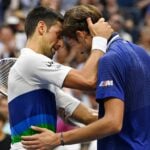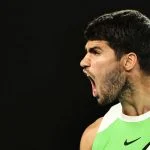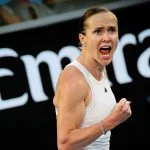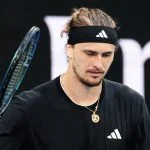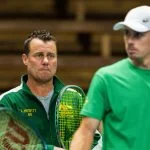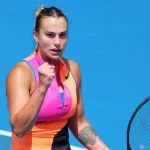Cervara: “Winning the US Open, yes it was huge, but it’s a step”
Gilles Cervara, the coach who guided Daniil Medvedev to his victory at the US Open, is already thinking of all the conquests that await the world No.2 and his team in the months and years to come.
 © Tennis Majors
© Tennis Majors
Gilles, what does Daniil Medvedev's victory at the US Open mean to you, his first Grand Slam?
Gilles Cervara: I want to answer this question with the same words that I used after his first trophy on the ATP circuit, his first Masters 1000 success: it’s a stage. This step has greater scope, of course. With a Grand Slam, you almost enter the Pantheon, even if it’s almost ridiculous compared to 20 majors (absolute record co-held by Roger Federer, Rafael Nadal and Novak Djokovic, editor’s note).
It was an indescribable emotion. I do not have the words to express it, I have an image, it is that I spontaneously raised both arms and looked up to the sky, with an incredible feeling of joy that made me think of the images of Les Yeux Dans les Bleus of 1998, when Team France won the soccer World Cup. I grew up with it. These images fueled my quest for performance and victory. How many times have I been able to view it? For once, I didn’t live it in the imagination, but in the flesh.
If this is a step, what kind of step is it?
Gilles Cervara: I asked myself the question. Because yes, it’s huge to have won the US Open. But Daniil, me and the whole team, we are always focused on performance. It’s a way of life, of thinking, which means that I will always be drawn to the idea of doing better, and therefore of winning the next tournament. To make this possible, I have to set up workouts to be even stronger and respond to more situations, to win even more.
Two days after the final, are you already in that state of mind?
Gilles Cervara: Yes. Daniil hasn’t gotten the hang of it yet, because you have to savour it and Daniil is on vacation this week before the Laver Cup. But it’s in my veins. And from what I know of Daniil, when I see that he can’t play Playstation without blowing a fuse if he doesn’t win, I tell myself that isn’t going to change for him either.
What is the difference between the Daniil who could not win a singles set in Melbourne against Djokovic and the one who powered through three straight sets against Djokovic at the US Open?
Gilles Cervara: In February, he was missing an invisible, energetic aspect. I don’t like the word mental, but it wasn’t up to par. Daniil came out of two very strong matches in the quarter-finals and the semi-finals (no sets lost against Andrey Rublev then Stefanos Tsitsipas, editor’s note). I think with his inexperience in the Grand Slam finals he figured that was going to be enough and that was a real mistake. Daniil and Francisca (Dauzet, his mental trainer) had noted this aspect in the debrief. Everyone on the team learned from this experience. It was a key to this final on our side. Novak’s level is something else, anyway, we were ready.
DANIIL, ME AND THE WHOLE TEAM, WE ARE CONSTANTLY FOCUSED ON PERFORMANCE. IT’S A WAY OF LIVING, OF THINKING.
Gilles Cervara
Did the climate around the Grand Slam or the twenty-first major of Djokovic affect your preparation?
Gilles Cervara: On our side, no. Now, when you watch the tennis, you see that this situation exists in the mind of the opponent and therefore you use it, as Novak would have used it against anyone. As soon as these champions feel a fragility in the opponent, they rush into it and widen the breach. I did not speak to Daniil about this context during the preparation for the final. I try to prepare him for the most difficult and extreme scenarios. If the game is to be easier, it’s up to Daniil to take the opportunity.
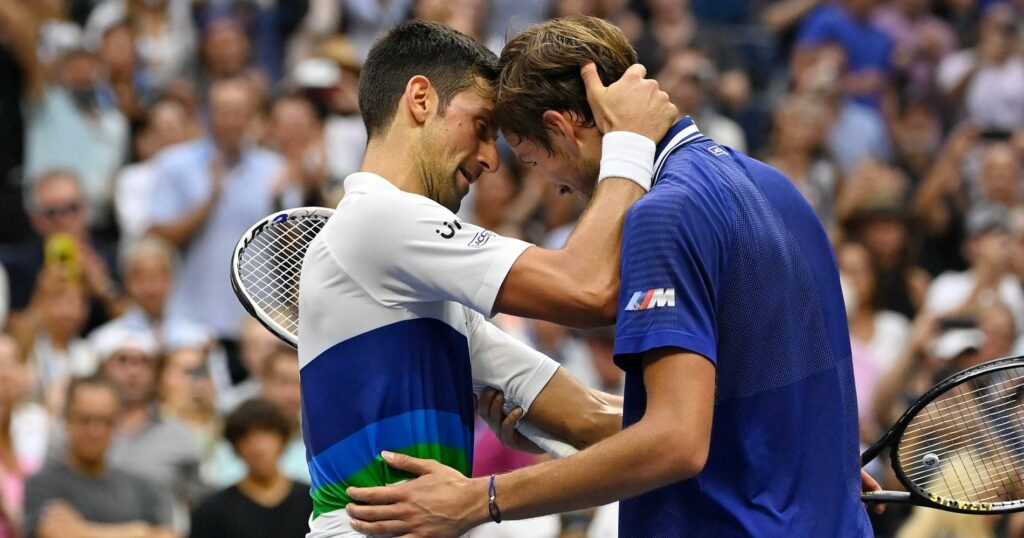
At no time did you try to use what was being said as motivation for Daniil, for example, from the declarations of Zverev, who presented Djokovic's victory as almost inevitable? I imagine it can leave its mark …
Gilles Cervara: It depends on the individuals. The player can also feed on it: “Wait buddy, you’ll see who’s the best”. Daniil is more the latter.
CERVARA: “HE WON A GRAND SLAM, BUT WE SEE A LOT OF THINGS TO IMPROVE”
Did he play the best tennis of his life in New York?
Gilles Cervara: I can’t say it that way. I can say that I had detected several areas of the game that weren’t up to par after the Olympics (quarterfinal loss to Carreño Busta) and that fed my training goals after Tokyo. In New York, I saw that he was at the required level on all these points and that was decisive in his development to a very high level of tennis. But to say that this is “his best level” is too abstract for me. It’s a formula that can refer to playing all the balls hard and getting it all in. His US Open was not like that. On the other hand, I note that he can slam an ace on every first and that he has a stable percentage. At 0-30 or 15-40, you know he can come back, and that’s very strong.
This return of serve so far behind the line, so daring, so effective, where does it come from?
Gilles Cervara: There is a history behind that. This is his signature. It’s part of his spontaneous preferences. Yet when you look at him like that, it seems absurd. When I started with him, even I was like, “It’s impossible to win by being so far back, you’re opening too many angles”. I tried to get him to return closer to the line, but he refused. He felt that as he got closer to the line, things just stopped happening for him. I think I had the intelligence to listen to him and put myself in his shoes, not to deconstruct something that is advantageous for him thanks to his size, his eye and his playing intentions. And the stats tell us that it pays a lot. So I told him that if that return, so far away, wasn’t effective against such and such a player, we had to build another return, a return that he is able to do when he feels it’s going to work.
What about serving a second serve as hard as the first?
Gilles Cervara: It was a possible strategy, mentioned before the match. He started early in the game, with an ace on his first second. Even I didn’t think he was going to start so soon. We were very flexible in using different strategies to prepare for the complexity of Djokovic.
TO BE NUMBER ONE AND WIN OTHER MAJORS, YOU MUST ACHIEVE THINGS CONCRETELY, AT WORK, EVERY DAY
Gilles Cervara
How do you formulate the next objectives? Is it about being number one? To win more Grand Slams?
Gilles Cervara: It’s a package, they are legitimate objectives. But above all, I tell myself that it involves work and improving many things on a daily basis. The team has already started to think: yes, he wins a Grand Slam, but we can see a lot of things to improve. These things represent the concrete aspects to be deployed with a view to a potential future great result. To be number one and win other majors, you have to achieve concrete things, at work, every day. We will do them. After that, if it goes well, we’ll say “hey, we’ve won” (laughs).
Do you think he's safe from a letdown like Dominic Thiem, who underestimated the energy it took in achieving his dream of a Grand Slam victory?
Gilles Cervara: I don’t think that will happen to him, but if we want to use what has happened for others, then yes it is a point of attention. It’s too early to know. If that happens, we will look for solutions.
CERVARA: “IS HE CAPABLE OF WINNING ROLAND-GARROS IN 2022? I SAY NO”
Daniil is entering a phase of his career where he has to win big titles just to defend his points and his standings. The Rolex Paris Masters and the ATP Finals for example, soon, which he won last year. How do you approach this new obligation?
Daniil doesn’t think like that, he always thinks in terms of points to win, never to lose. At a certain level, when you are well established in the Top 3 or Top 5, you no longer think in terms of points to defend or ranking to protect, but of titles to win. You start the season by saying to yourself: “I want to be number one and win as many big titles as possible”. So every tournament is an opportunity to earn points. You only take stock at the end, but you no longer compare with the previous season.
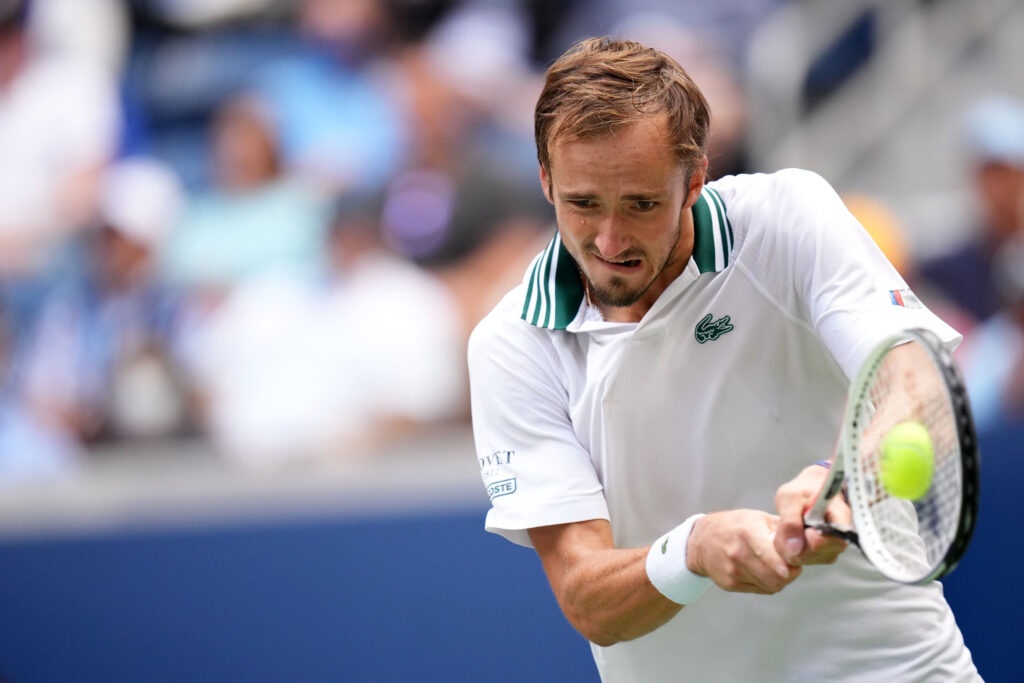
Do you think Daniil capable of winning Roland Garros and Wimbledon in 2022?
Gilles Cervara: Roland-Garros, I say no. Wimbledon, I say yes.
However, he seemed to make considerable progress in his relationship to clay with his quarter-final at Roland Garros?
Gilles Cervara: On the tennis front, yes, but the stake on this surface, in his case, 80%, lies in the approach. I still cannot guarantee that his problems in approaching the clay courts are behind us.




